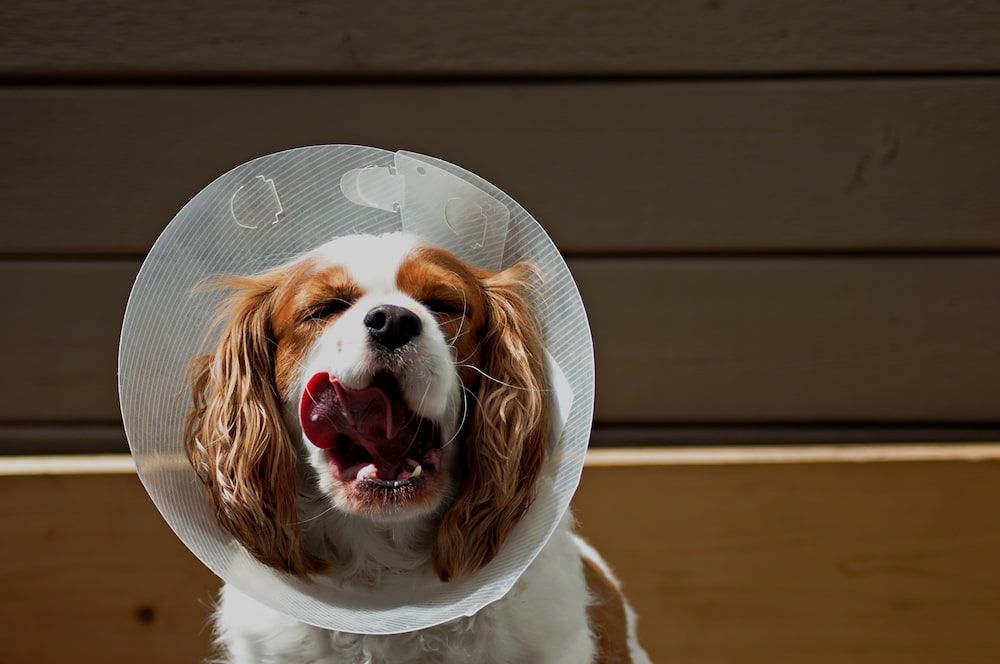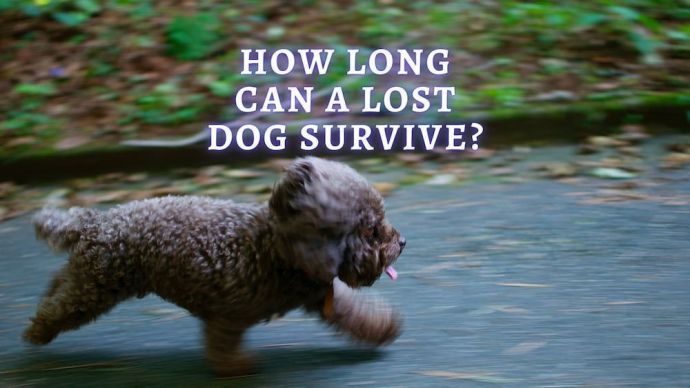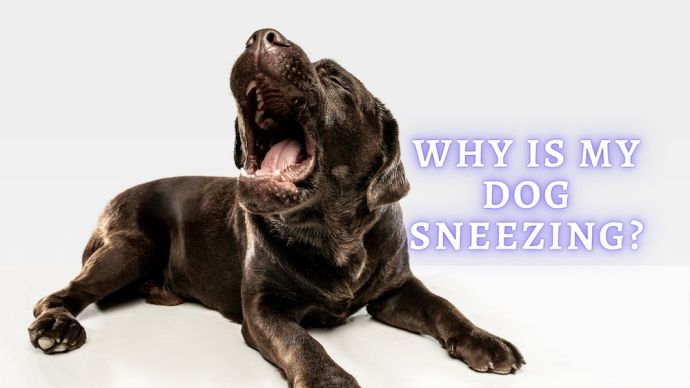Signs That Your Dog Needs To Be Neutered. Vet-Approved Myths and Truths
Written by:
Author: Seb Jenkins
Seb is a professional SEO writer with a degree in Journalism, he has five years of experience in writing and editing. Seb specializes in topics like dog and cat breeds, aquarium guides, and pet care. He is passionate about educating and entertaining animal owners worldwide. In his spare time, Seb enjoys writing fiction novels.
View all 83 articlesLearn about our editorial process and veterinary review board.
Reviewed by:
Veterinary review
by Dr. Linda Simon
Dr. Linda Simon is a veterinary surgeon working with seven years of experience. She is a fellow of the British Veterinary Association and specializing in animal medicine. Also, she has been the Woman magazine resident vet for the past two years and writes a regular column for them, focusing on pets and their health.
View all 30 articlesLearn about our veterinary review board
Viewed: 92
Updated on: 06/08/2023
Neutering your dog can seem like a daunting decision to make, especially for first-time pet owners. Knowing the information and reasons behind the procedure is important before jumping into any decisions. That’s why we have created an all-you-need-to-know guide on dog neutering, which should answer any pressing questions you may have.
What is Neutering?
Neutering is a medical procedure to remove the testicles from a male or the ovaries of a female canine. It is also referred to as castration for males and spaying for females. Owners get their dogs neutered because it removes the risk of certain illnesses, such as particular cancers, and prevents unwanted pregnancies.
When Should I Neuter My Dog?
The majority of dogs can be neutered from the age of 4-6 months onwards, but you should always book an appointment with your veterinarian to find out whether the procedure is suitable for your pet. That being said, the official PDSA advice is that all owners should have their pups neutered unless a vet specifically advises against it.
Recent research suggests waiting until a dog is over 12 months, especially in large breeds, can have advantages in later life. This can include a reduced risk of joint disease and knee ligament damane.
DMV Linda Simon
The perfect time to neuter your pet depends on their size, breed, behavior, health, season (for females), weight, and more. This is why a vet must sign off on each animal before receiving the procedure.
Why Should I Neuter My Dog?
In male dogs, the many benefits of neutering include:
- Prevents the risk of testicular cancer.
- Cuts down on humping behaviors.
- Reduces the risk of running away to find a female mate.
- Reduces prostate health problems.
RELATED: Pros and Cons of Neutering a Male Dog (Vet Advice)
In female dogs, the benefits of neutering include:
- Reduces the risk of mammary cancer.
- No unwanted pregnancy.
- No infections inside the womb (pyometra).
- It prevents seasons, which can be messy and make it hard to walk a female outdoors due to unwanted male dog attention.
RELATED: Vet Advice On Spaying Your Female Dog
Does Neutering Help Reduce Aggression In Dogs?
Neutering can help reduce aggression in some animals over the long term. However, it is not as clear-cut as some people think. It is not a case of removing the reproductive organ and flicking a switch inside your pup’s mind. Whatever habits their hormones taught them before the procedure will still be there. However, the lack of those hormones may reduce the frequency with which they show those habits. Some owners report increased aggression immediately after the procedure, but most of them will then mellow over time.
Importantly, when aggression is triggered by anxiety, neutering can actually make things worse. The dog’s confidence may lower and they can start to get more reactive. This is why you need to discuss neutering with both a vet and behaviorist if you have an anxious or aggressive pup.
DVM Linda Simon
Will Neutering Make My Dog Fat?
Both male and female dogs can be at a higher risk of weight gain after being neutered. Because castration and spaying change the balance of hormones within your pet, it can impact the way they eat and move. Metabolism can slow down after the neutering procedure, increasing appetite by up to 25% and reducing energy requirements by approximately 30%. As such, neutered animals can be as much as three times more likely to become obese than non-neutered ones.
However, this is avoidable! We simply need to adjust the amount our pets eat, ensuring the calories consumed are not more than what are required.
DVM Linda Simon
Does My Dog Need To Have A Litter Before I Spay Her?
There is no need for a female dog to give birth to a litter before she is spayed. You only need to worry about litter if you are using a dog for breeding purposes. Unless that is the case, they can be neutered before becoming a parent.
There is a misconception that a female dog should have a litter, and would ‘miss out’ if she does not have one. For many females, pregnancy, labour and nursing pups non-stop for 8 weeks is hard work and not all mothers cope well or accept their litter.
DVM Linda Simon
Does Neutering A Dog Calm Them Down?
One of the most common questions related to neutering revolves around whether the procedure will calm a dog down. Unfortunately, there is no simple answer for this. In the long term, castration and spaying can calm your dog down. However, there may be a long road to get to that point.
Some people expect their pets to change completely after the procedure, but that isn’t a realistic expectation for most animals. Just because you are neutering them doesn’t mean you are changing the impact that certain hormones have already had on your dog’s mind. Certain behaviors are already learned and will never completely reverse themselves.
For example, in male dogs, testosterone does not cause certain behaviors like aggression or humping, but it makes them more frequent and likelier. Thus, the process of castration will probably reduce the frequency of humps and lower aggression. But those behaviors may never disappear completely.
It is also important to note that immediately after the procedure, some dogs actually become more aggressive for a temporary period of time. Some breeds are more likely to experience this than others. It is likely due to the anesthesia making them feel poorly and just general confusion, so be extra patient with them.
For most dogs, excess energy and hyperactivity is more linked to a lack of exercise, training and mental stimulation than to their sex hormones. So, providing them with plenty of things to keep busy can make a huge difference.
DVM Linda Simon
Signs Your Dog Needs To Be Neutered
There are a number of tell-tale signs that could hint towards a need for neutering.
For male dogs, these include:
- Aggression (but not when linked to anxiety).
- Quicker to become aggressive.
- Using urine for marking territory.
- Humping.
- Mounting.
- Running away to search for a mate.
- Taking risks.
- Masturbating.
- A reduced fear response.
- Higher sex drive.
For female dogs:
You will see the first signs of sexual maturing in a female dog once they reach around 9-10 months and experience their first heat. This usually comes with moodiness, a couple of weeks of bloody discharge, and male dogs showing unwanted attention. A female dog should not be spayed while in heat as it comes with more risks. You should wait until around two to three months after her season has finished. We recommend waiting until your female dog is six months or older, then book an appointment to ask your veterinarian for advice.
READ MORE: Do Neutered Dogs Live Longer? (Explained by Vet)
Why Should You Not Neuter Your Dog?
Of course, the positives to neutering are clear for anyone to see. There is a reason that so many experts recommend it as something all owners should do unless instructed otherwise. However, there is some research that outlines why neutering may not be a good idea in certain situations.
Of course, the most obvious reason not to neuter involves the breeding business. If you want to use a dog for breeding, then you need them to have their reproductive organs. However, before sending them down the breeding path, you should do a lot of research and talk with your vet to ensure they are suitable. Only the healthiest animals with the best temperaments should be bred.
Some research also indicates that certain health problems can arise as a result of the castration or spaying procedure when an animal is young. Dr. Benjamin Hart and a research team at the University of California conducted a series of tests across 35 different breeds to see how neutering impacted them.
For example, in Golden Retrievers, the study found that the dogs were 3-4 times more likely to suffer from certain cancers and hip dysplasia if they had been neutered or spayed. That being said, they found that smaller breeds under 20 pounds were mostly unaffected by the procedure.
We are often told that castration reduces the risk of prostate cancer in male dogs, but Dr. Hart’s research indicates that it is actually more common in neutered dogs.
How Long Is Recovery after Neutering A Dog?
One of the most important things to educate yourself on is the recovery period and process after your pup has been neutered. After all, it is your job to nurse your four-legged friend back to full health.
Each animal will have their own individual recovery timeline, so it really does come down to the individual. That being said, you can follow some general averages as a rough guide. Most are lethargic and tender for the first few days, then recover quickly. A healthy dog often needs around ten days before returning to normal activities if there are no problems with the procedure.
You should let your dog rest for those ten days or so, even if they seem back to their normal selves before that. They won’t seem ill or tired for the entire period, but it is important to let their bodies rest and recover fully. Being too active too soon could result in a seroma forming, an incision site infection or a wound break down.
You will need to purchase an inflatable collar or e-collar (also known as an Elizabethan collar) to prevent your dog from licking their incision and causing damage. They will likely find it strange and irritating, but ensuring there are no unwanted complications is necessary. It has to stay on 24/7.
Keep an eye on your pet’s behaviors as the days tick by. You should notice their energy levels return and their bathroom schedule goes back to normal. Each day should show signs of improvement before your canine friend is back to their best.
READ MORE: When to Take Cone Off Dog After Neuter?
People Also Ask:
What happens if I don’t neuter my dog?
An unneutered dog will still be able to reproduce with another unneutered dog. If you have a female dog, it may result in an unwanted pregnancy. Your dog will be at increased risk of certain medical problems, including testicular cancer or womb infection, prostate disease and mammary cancer. Males may have more ‘nuisance’ behaviors, such as humping and urine marking.
Do male dogs change after being neutered?
Your pet will likely still have their same old personality that you know and love. However, some owners report a reduction in certain behaviors in male dogs over the long term. This can include a reduction in aggression, humping, mounting, running away, and more.
What is the best age to neuter a male dog?
The best age to neuter a male dog is from six months. However, you should always ask your veterinarian to check whether your dog is suitable for the procedure at this age, as some breeds benefit from waiting longer.
How do dogs act when they are not neutered?
Unneutered dogs will carry the same behaviors they have always had because their hormone balance remains the same. In male dogs, this can include humping, mounting, aggression, a short fuse, and running away to find a female mate. In female dogs, you will notice periods of heat where your pet is moody, has a bloody discharge, and receives unwanted attention from male dogs.
 Dog Care Dog Stung By Bee: What To Do If Your Dog Gets Stung By A Bee? (Vet Approved Advice)
Dog Care Dog Stung By Bee: What To Do If Your Dog Gets Stung By A Bee? (Vet Approved Advice) - 56
- 0
 Dog Care Why Do Dogs Roll in the Grass? 4 Most Common Reasons and How To Stop It
Dog Care Why Do Dogs Roll in the Grass? 4 Most Common Reasons and How To Stop It - 58
- 0
 Dog Care Why Do Dogs Wink? Health and Behavioral Reasons Why Do Dogs Wink At You
Dog Care Why Do Dogs Wink? Health and Behavioral Reasons Why Do Dogs Wink At You - 948
- 0
 Dog Veterinary Tips Why is my Dog throwing up: Causes and Preventing (Veterinary Advice)
Dog Veterinary Tips Why is my Dog throwing up: Causes and Preventing (Veterinary Advice) - 21800
- 5
 Dog Care My Dog Keeps Scratching His Mouth: Reasons Why Your Dog Scratching Face
Dog Care My Dog Keeps Scratching His Mouth: Reasons Why Your Dog Scratching Face - 17168
- 1
 Dog Care Why Is My Dog Bleeding From Its Butt? Causes and treatment of rectal bleeding in the dog
Dog Care Why Is My Dog Bleeding From Its Butt? Causes and treatment of rectal bleeding in the dog - 15112
- 0
























